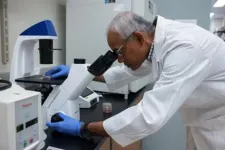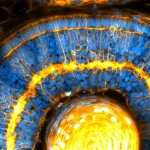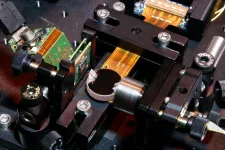HHMI invests $500 million in AI-driven life sciences research
Centered at the Janelia Research Campus, AI@HHMI will embed AI systems throughout every stage of the scientific process in labs across HHMI over the next 10 years.
2024-08-12
(Press-News.org) The Howard Hughes Medical Institute today announced AI@HHMI, a $500 million investment over the next 10 years to support artificial intelligence-driven projects in the life sciences. As the largest private biomedical research organization in the United States, HHMI aims to explore the full promise of AI to accelerate scientific discovery at its Janelia Research Campus in Ashburn, Virginia, and at the more than 300 HHMI-affiliated labs.
“By bringing human curiosity and artificial intelligence closer together at every phase of experimentation and data collection, we hope to enable a wide range of scientific breakthroughs at our Janelia Research Campus and HHMI labs throughout the country,” said HHMI President Erin O’Shea.
While AI@HHMI will be centered at Janelia, it will drive AI-focused collaborations across the broader HHMI community. Through this effort, hundreds of HHMI scientists will help design and execute a wide range of ambitious AI-based biomedical research projects.
AI@HHMI will adopt an approach to research dubbed “AI-in-the-Loop,” which will place AI at the heart of the scientific process to accelerate discovery and catalyze an explosion of knowledge about the complexities of life. AI systems will be used to help design experiments, build automated pipelines, collect high-quality “AI-ready” data, and create generalizable learning models capable of inferring underlying principles within that data.
“Our scientists will reimagine the research process,” said Janelia Executive Director Nelson Spruston. “As always at HHMI, people will remain at the center of this initiative. Multidisciplinary teams will collaborate to design, execute, and interpret experiments. By sharing the tools and results, we aim to transform and accelerate the discovery process, not just at HHMI, but around the world.”
For 15 years, HHMI’s Janelia Research Campus has been at the forefront of AI-driven research applied to biology. Janelia scientists have built machine-learning systems to tackle a host of challenges in the life sciences and, previously, Janelia partnered with Google to apply AI systems to biology, both through their Connectomics group and DeepMind. These efforts have yielded a range of significant breakthroughs, including the first detailed map of an adult fly brain, a milestone technological achievement with direct implications for neuroscience research.
“Janelia’s unique strength is the tight collaboration between theorists, experimentalists, computational scientists, and engineers that allows us to develop theoretical and computational models and collect high-quality experimental data to train and validate them,” said Stephan Saalfeld, Janelia Senior Group Leader and Head of Computation and Theory.
To kick off the first phase of this investment, through October 4, 2024, AI@HHMI is inviting proposals for AI-based research projects led by HHMI Investigators, Freeman Hrabowski Scholars, and Janelia Group Leaders. Accepted projects will be fully funded by HHMI and executed at Janelia in collaboration with HHMI labs as well as a new team of AI scientists, AI engineers, robotics engineers, and data scientists.
More information about AI@HHMI is available online at ai.hhmi.org.
###
HHMI is the largest private biomedical research institution in the nation. Our scientists make discoveries that advance human health and our fundamental understanding of biology. We also invest in transforming science education into a creative, inclusive endeavor that reflects the excitement of research. HHMI’s headquarters are located in Chevy Chase, Maryland, just outside Washington, DC.
END
[Attachments] See images for this press release:
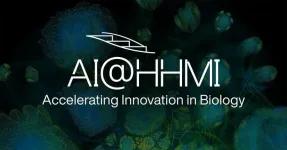
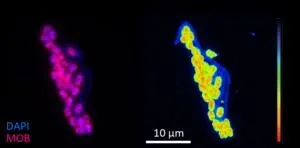
ELSE PRESS RELEASES FROM THIS DATE:
2024-08-12
People who have served time in jail or prison are less likely to have bank accounts after they are released than they were before serving time, which may hinder their long-term financial security, according to new research.
“Locked out of banking: The limits of financial inclusion for formerly incarcerated individuals” was authored by Brielle Bryan, an assistant professor of sociology at Rice University and J. Michael Collins, a professor of public affairs and human ecology and the Fetzer Family Chair in Consumer and Personal Finance at the University of Wisconsin-Madison. It ...
2024-08-12
Samuel (Sandy) Aronson, ALM, MA, executive director of IT and AI Solutions for Mass General Brigham Personalized Medicine and senior director of IT and AI Solutions for the Accelerator for Clinical Transformation, is the corresponding author of a paper published in NEJM AI that looked at whether generative AI could hold promise for improving scientific literature review of variants in clinical genetic testing. Their findings could have a wide impact beyond this use case.
How would you summarize your study for a lay audience?
We tested whether ...
2024-08-12
INDIANAPOLIS — Researchers at the Indiana University Melvin and Bren Simon Comprehensive Cancer Center have completed the most extensive mapping of healthy breast cells to date. These findings offer an important tool for researchers at IU and beyond to understand how breast cancer develops and the differences in breast tissue among genetic ancestries.
Published this month in Nature Medicine, researchers developed a comprehensive atlas of breast tissue cells – including details ...
2024-08-12
Liling Huang, Associate Professor, Department of Electrical and Computer Engineering Dominion Energy Faculty Fellow, received funding for: “Electric Distribution System Protection - Modeling and Testing with Real-Time Digital Simulator.”
Huang will address the complexities of the electric distribution system introduced by Distributed Energy Resources (DERs) through Real-Time Digital Simulator (RTDS) modeling and Hardware-in-the Loop (HIL) simulation to enhance protection system ...
2024-08-12
JP Singh, Distinguished University Professor, Schar School of Policy and Government, received funding for: “George Mason University Center for AI Innovation for Economic Competitiveness.” He is collaborating on the project with Co-Principal Investigator Amarda Shehu, Associate Vice President of Research, Institute for Digital Innovation, Professor, Computer Science, College of Engineering and Computing (CEC); Jesse Kirkpatrick, Research Associate Professor, Philosophy, College of Humanities and Social Sciences; Acting Director, Institute for Philosophy and Public Policy, Philosophy and Religious Studies; Terry Clower, Northern Virginia Chair in Local ...
2024-08-12
Methane is a potent greenhouse gas frequently produced in the sea and in fresh water. Lakes in particular release large quantities of this climate-killer. Fortunately, however, there are microorganisms that counteract this: They are able to utilize methane to grow and generate energy, thus preventing it from being released into the atmosphere. These microorganisms, known as methanotrophs, are therefore regarded as an important "biological methane filter".
Methanotrophs comprise various groups of microorganisms, and many questions about their way of life have yet to be answered. A study by researchers from the Max Planck Institute for ...
2024-08-12
(Santa Barbara, Calif.) — In work conducted both at UC Santa Barbara and the Physics of Life Excellence Cluster of TU Dresden, biophysicist Otger Campàs and his research group have found that cell nuclei control the architecture and mechanics of eye and brain tissues during embryonic development. These results add a new role for the cell’s nucleus in tissue organization, well beyond its established role in genetic regulation.
“We were measuring tissue stiffness in the zebrafish retina, and realized that it depended on the packing of nuclei. This was totally unexpected because tissue mechanics is believed to depend on cell surface interactions, but not ...
2024-08-12
TUCSON, Arizona — Researchers at the University of Arizona Mel and Enid Zuckerman College of Public Health and the U of A Native Nations Institute are establishing a framework that protects the way Indigenous data is collected and used around the world, thanks to a $1.5 million grant from the National Science Foundation.
For as long as researchers, health care providers and government agencies have studied Indigenous communities, there has been mistrust about the data collected. Indigenous peoples have raised concerns about who owns and profits from the data, as well as how it is used. Using the grant, the researchers, in ...
2024-08-12
EPFL researchers have published a programmable framework that overcomes a key computational bottleneck of optics-based artificial intelligence systems. In a series of image classification experiments, they used scattered light from a low-power laser to perform accurate, scalable computations using a fraction of the energy of electronics.
As digital artificial intelligence systems grow in size and impact, so does the energy required to train and deploy them – not to mention the associated carbon emissions. Recent research suggests that if current AI server production continues at its current pace, their annual energy consumption could outstrip that of ...
2024-08-12
Amsterdam, August 12, 2024 – An article in a special issue on The Planetary Future published in Environmental Policy and Law (EPL) by IOS Press (now part of Sage), considers the Planetary Trust as an essential framework underlying today’s kaleidoscopic world, reviews important developments in implementing the Trust, and focuses on important steps to take now to ensure a just, robust Earth system for present and future generations.
Bharat H. Desai, PhD, Jawaharlal Nehru University, Centre for International Legal Studies, and Editor-in-Chief ...
LAST 30 PRESS RELEASES:
[Press-News.org] HHMI invests $500 million in AI-driven life sciences research
Centered at the Janelia Research Campus, AI@HHMI will embed AI systems throughout every stage of the scientific process in labs across HHMI over the next 10 years.



